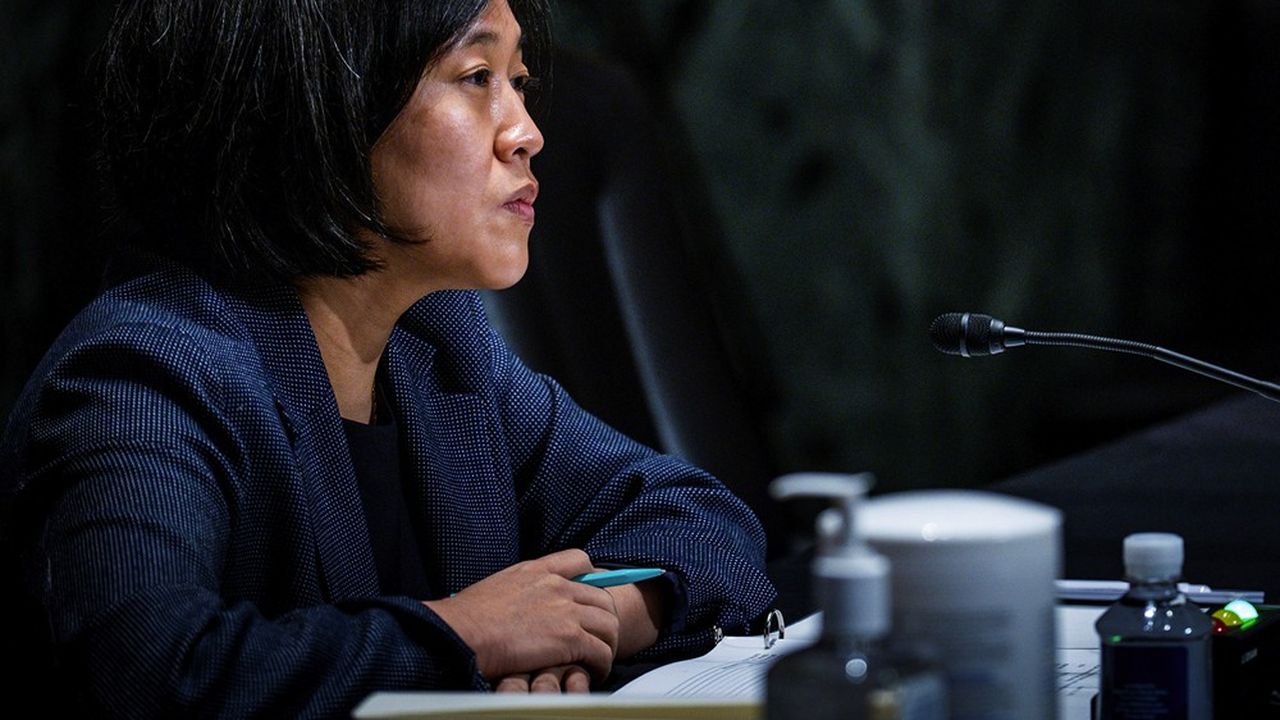Posted on Oct 6, 2021, 6:37 PM
Trade and Taiwan. Three days after the Biden administration unveiled its new trade strategy against China, and as dozens of Chinese planes fly over the Taiwanese identification zone, White House national security adviser Jake Sullivan, spoke Wednesday in Switzerland with the chief of Chinese diplomacy, Yang Jiechi. It was the first high-ranking meeting since the September 9 telephone exchange between Joe Biden and Xi Jinping, the teams of the two heads of state having not spoken to each other since the icy meeting in Alaska seven months ago.
Hardening on China
Tensions are as high as during the previous Trump administration. “On China, our approach will harden. Since the conclusion of a bilateral agreement between our two countries, Chinese commitments have continued to decline, ”said US Trade Representative Katherine Tai during a meeting with the French press on Wednesday. Present in Paris for a meeting on trade at the Organization for Economic Co-operation and Development (OECD), she hopes to be able to meet with her Chinese counterparts soon.
On Monday, during a speech to the Center for Strategic and International Studies (CSIS), she set the tone: “We continue to have serious concerns about business practices centered on state-owned enterprises and not on the market economy. […] For too long, China’s lack of adherence to global trade standards has undermined Americans’ prosperity […] It is increasingly clear that China’s plans do not include meaningful reforms to address US “concerns.”
An example ? Steel. China provides nearly 60% of world steel production. It produces more in a single month than the United States and most other countries in the world produce in an entire year. “We want to build on our collaboration at the United States-EU summit which provided a framework for the Boeing-Airbus dispute. The Pittsburg (TTC) summit shows that we can work together. It is in this same spirit that we want to respond to overcapacity in steel and aluminum production, ”says Katherine Tai.
Exemptions
Firmness does not prevent a certain American pragmatism. On Tuesday, the Biden administration said it would grant tariff exemptions on Chinese products on a case-by-case basis if there is no alternative to imports. Under the Trump administration, more than 2,200 exemptions were granted and then 549 were extended. “Most of these exemptions expired as of Dec. 31, 2020,” the USTR said, prompting a further review of business claims. The latter have 50 days from October 12 to justify their request.
To make China a superpower in 2049, “Xi Jinping is pursuing an increasingly marked state economic development policy on the left while its foreign policy is turning to the right,” notes Kevin Rudd, director of the Asia Society . “Chinese nationalism becomes more important as growth slows,” he told the World Policy Conference in Abu Dhabi last Saturday. “If Xi Jinping is renewed, we will see a China increasingly firm vis-à-vis Taiwan, the East China Sea, its neighbors and multilateral institutions.” The former Australian Prime Minister does not foresee any movement towards Taiwan “before the end of the decade, when China considers that it will then have the advantage of the balance of power over the United States”. But it is clear to many experts that Xi Jinping wants to succeed in reintegrating Taiwan and that this must be his mark in history.
The dreaded invasion of Taiwan
On Wednesday, back from Michigan, Joe Biden told reporters that he and Xi Jinping had agreed to respect “the Taiwan agreement”. The White House subsequently clarified that this is a series of communiques exchanged over the past forty years which recognize the People’s Republic of China as the only legal government in the country without, however, ever specifying the issue of Taiwanese sovereignty. On Tuesday, the President of Taiwan, Tsai Ing-wen, reiterated in Foreign Affairs that the fall of the island “would be catastrophic for regional peace and the democratic system of alliance” by accepting the victory of authoritarianism. Its Defense Minister predicts that Beijing will have the means to mount an invasion from 2025.
–


